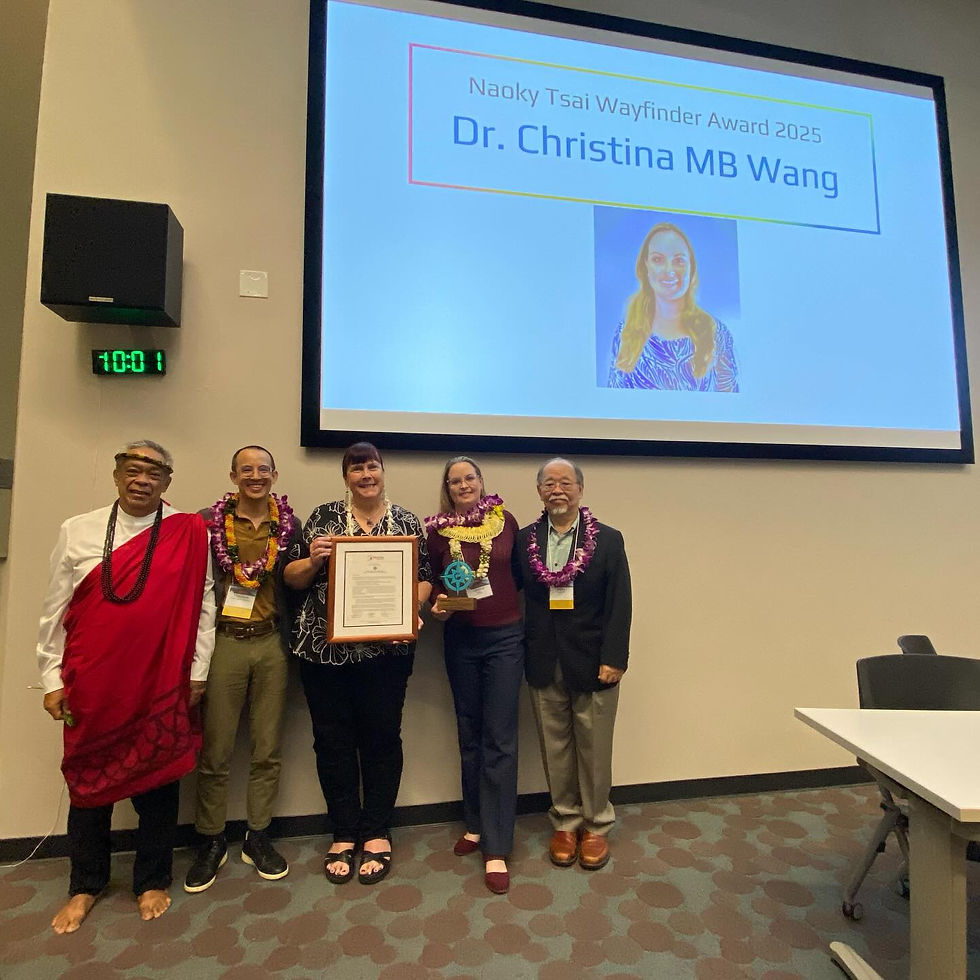Viral Hepatitis Briefing Informs Legislators About Community Needs
- hnakao6
- Nov 6, 2023
- 2 min read

Hep Free Hawaiʻi (HFH), HHHRC, and community advocates testified at the state capitol on October 4 at a joint informational briefing of the House Health & Homelessness Committee and the Senate Health & Human Services Committee.
Legislators who attended included both committee chairs, Rep. Della Au Belatti and Sen. Joy San Buenaventura, House Health Vice-Chair Jenna Takenouchi, and Senators Bert Kobayashi and Sharon Moriwaki. Those who testified included HHHRC Executive Director Heather Lusk, Timothy McCormick, and Thaddeus Pham from the Hawaiʻi State Department of Health, Dr. Naoky Tsai, Dr. Melissa Bumgardner, Kenson Alik of the Micronesian Education for Liver Wellness Project, and HHHRC Executive Director Heather Lusk.
Legislators voiced their support for increased public commitments in the areas of surveillance, vaccination, screening, and access to treatment.
The current lack of dedicated public health resources in Hawaiʻi focused on viral hepatitis, including surveillance, vaccination, screening, and treatment, has contributed to a syndemic where those from under-resourced populations who are living with or at risk of other chronic medical conditions face additional burdens to their health. This syndemic increases the costs to private and public systems of care each year.
According to the state Department of Health, annual liver cancer death rates in Hawaiʻi were higher than the national average from 2000 to 2020, with the statewide rate (9.41 per 100,000) at 1.3 times the U.S. rate (7.35 per 100,000) in 2020.
Lusk offered the following policy recommendations to the legislature: (1) removal of all prior authorization requirements for HCV treatment; (2) additional funding for a Hepatitis Specialist position in the state Department of Health; and (3) utilizing a portion of opioid settlement funds to increase treatment access and vaccinations.
HFH has worked with over 200 community partners in recent years on a strategy to eliminate viral hepatitis A, B, and C statewide. “Hep Free 2030” identifies five priorities to eliminate hepatitis in Hawaiʻi: awareness and education, access to services, advocacy at all levels, equity in everything, and data for decision-making.
Earlier in the year, U.S. Senator Mazie Hirono was among those members of the state’s congressional delegation who voiced support for HFH and its elimination strategy: “Your efforts to raise awareness and break down access barriers to hepatitis vaccines, screenings, care, and treatment are truly commendable. Through local, national, and global partnerships, the ‘Hep Free 2030’ elimination strategy has steadily pushed Hawaiʻi closer to the ultimate goal of eliminating viral hepatitis from our state.”
In 2020, the CDC declared viral hepatitis a "winnable battle" making it a national public health priority where significant progress can be made in a relatively short timeframe.










Comments